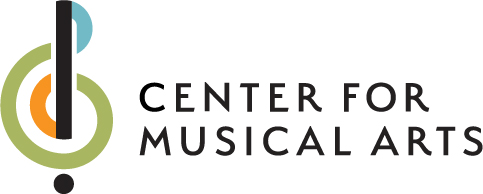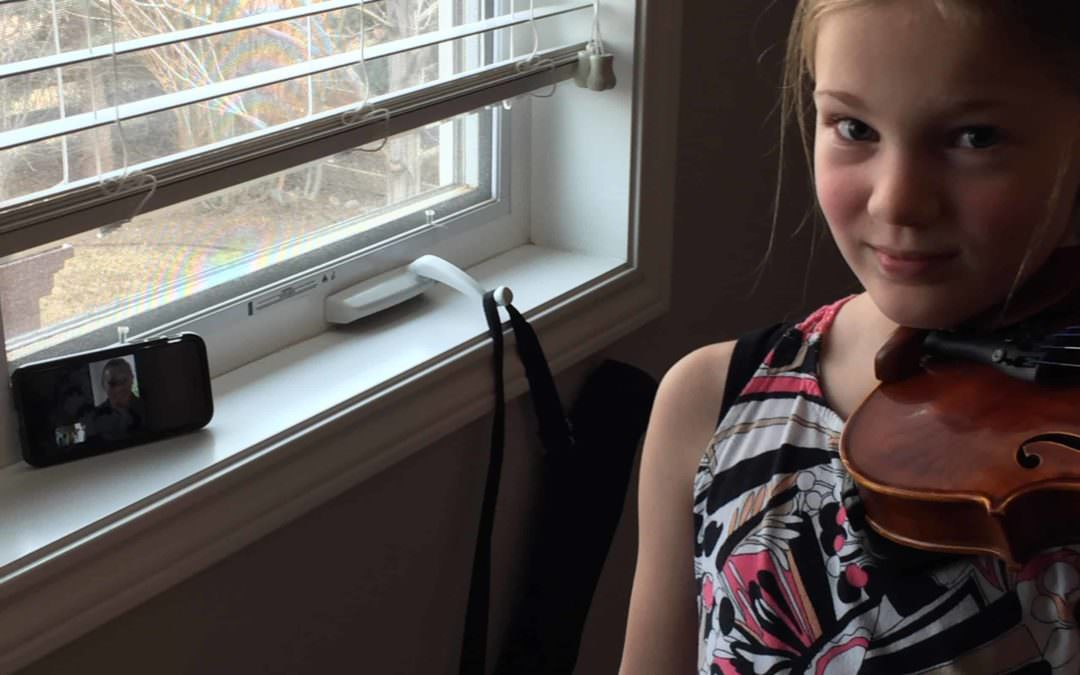At the Center for Musical Arts, no in-person lessons or classes have been held since March 12, the day that Boulder Valley School District announced their closing in response to the COVID-19 pandemic.
“‘Business as usual’ has become a thing of the past,” says Center co-founder Kathy Kucsan.
Seemingly overnight, COVID-19 has forced many organizations to sink or swim — and thanks to strong leadership, nimble faculty, and flexible students, the Center is thriving. After making a lightning-quick pivot to offer their lessons and classes online, the Center lost only about 25 students — and is currently maintaining over five hundred students. “This is the way we had to keep the music going,” says Kathy. “So we did it.”
“I’ve learned in a deeper way just how dedicated our teachers are. Everyone is sharing ideas and strategies and suggestions — how to make the sound better on Zoom, where to position the microphone for different instruments, where to put the phone or computer so the teacher can best see the kid at the keyboard… In a weird way, our esprit de corps is better than ever. We’re all ‘in this’ together and making the best of it. I appreciate their commitment and creativity so much.” —Center co-founder Kathy Kucsan
How do online lessons and classes work? Kathy tells us that they work very similarly to the Center’s in-person lessons, though faculty are now using seven different online platforms — from Zoom to FaceTime and beyond — in order to meet with students.
Of course, there have been bumps along the way. For the time being, ensembles such as the Center’s Concert Band and the Center’s Jazz Ensembles are on hold. “We have had to face that certain things cannot translate to online learning,” says Kathy, citing the limitations of software and Internet capacity, which cause tiny delays that make synchrony nearly impossible when students play “together” online. The Center faculty is hard at work on resolving those issues for the future.
And of course, there is the human factor. “Articles are showing up about this very thing,” says Kathy. “We miss human contact so much. So we meet online, but it still involves some remoteness that we can’t seem to overcome.”
But overall, Kathy suggests that humor and patience are winning the day. Families are adjusting graciously, students are laughing and learning. “One thing I’m personally very grateful for is our faculty, because they’re just moving along in great spirits,” says Kathy. “Everyone seems to understand that music is really important, and this is how we have to make it happen right now.”
Though no one can tell exactly what the future will bring, Kathy is confident that the Center will continue offering online lessons even once in-person meetings are possible. After all, online lessons allow the Center to reach out-of-region and even out-of-state students, students with travel restrictions or health issues, students who prefer a specific instructor, and more. The Center is even working on video content for senior residences — a population which may wish to continue to learn remotely even after stay-at-home orders have been lifted.
Online learning is here to stay at the Center. “We’ve learned that we can do it, and we’re pretty good at it,” says Kathy. “We want to support everyone to access music in whatever form is best for them. We’ve learned that we can do this, and we’re going to continue to get better and better at it.”
See All of Our Online Programs

